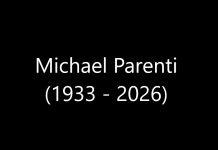Time is money. Money talks. Money does not grow on trees. Save for a rainy day. There is no such thing as a free lunch. The English language is replete with sayings that express the centrality of money.
That’s because money makes the world go round.
Similarly, the aphorism “follow the money,” popular among journalists, expresses a rule of thumb for finding things out, usually shady dealings. It is often said to originate in the Watergate scandal, the most famous case of investigative journalism in American history.
In the early 1970s, two young reporters with the Washington Post, Bob Woodward and Carl Bernstein, unraveled a series of crimes perpetrated by people working for President Richard Nixon, including breaking into the headquarters of the opposing Democratic Party in the Watergate building in Washington DC.
These people also orchestrated a break-in of the office of Daniel Ellsberg’s psychiatrist, in an attempt to find and make public incriminating information about Ellsberg, the former official in the Department of Defense who exposed the Pentagon Papers. This secret history of American involvement in Vietnam showed how officials continually lied to the media about the war’s “progress.”
Woodward and Bernstein received the advice to “follow the money” from their main source, which they called Deep Throat. He has since been identified as Mark Felt, at the time the second-in-command at the FBI. Or so the story goes. The phrase does not appear in the reporters’ book about Watergate, All the President’s Men. Deep Throat says it in the movie with the same title, but in reality Felt didn’t coin the phrase.
That pesky fact notwithstanding, the advice to “follow the money” apparently resonates so deeply with many people that up until today few realize it is ahistorical. As another journalistic aphorism holds: “Never let the facts get into the way of a good story.”
The main reason for the phrase’s popularity might be that “follow the money” instinctively feels like sage advice. Forensic detectives routinely track down money trails. In their search for truth, they want to know who paid whom how much and when. Payment records are hard evidence, similar to the metadata that the NSA is so keen on, per Edward Snowden’s revelations about the extent to which governments collect information on their citizens.
As a journalism scholar, I have long been familiar with the phrase “follow the money.” But, this article is not about journalism. It is about how I have recently found the phrase useful in another context, namely as throwing a fresh light on money itself and its role in the world.
For almost half a century I never thought about money. That changed when I had some extra time on my hands while on a research sabbatical. I took the opportunity to look into the state of my pension, something that I had postponed and postponed because I was busy making money.
I have realized that I was not alone. Very few take the time to think about money. It’s just there, at the center of our lives, essential to survival, like water to a fish. Many people think a lot about how to make money and spend many hours a week working, but they virtually never think about money itself.
There is wisdom in these words by American businessman Michael Saylor, who turned his middling software company MicroStrategy into the very profitable bitcoin-holding company now called Strategy. He advised: “You’ll spend 100,000 hours working to earn money. Spend 100 hours learning how to keep it.”
So I started studying money and stumbled up bitcoin. One thing led to another. Soon I was downloading and printing reams of academic articles on money, finance, and related matters.
I don’t remember where or how I first read about bitcoin. Up until that point I had only the vaguest awareness of its existence. I had never read anything about it. My “knowledge” must have been based on a few headlines from years ago that I don’t recall. If I had to verbalize my vaguest of notions it was that bitcoin is some variation on an internet scam.
What is Money?
Money constitutes an amazing technological invention, when you think about it. The modern world cannot function without it. Commerce and the economy at large cannot continue without money. We store and communicate value in money. It represents the value we create by working.
Imagine a world exactly like ours but without money. It doesn’t feel possible. Imagine a world of which you only know that people barter or keep informal records of favors done and returned and don’t use money. The inescapable conclusion is that it is a primitive society. In short, money is foundational to civilization.
Some people know that these days we live in societies where governments can print money at will, literally with the click of a button. As opposed to when the world was on a gold standard, under a so-called fiat standard the money we earn, use and save is not backed by anything but the state’s promise that it’s good. And will stay that way.
Money, then, is what the states that can print their own money, most prominently the United States, say it is. It’s a crucial fact that warrants a minute at least to ponder. Governments and central banks hold the ability to say what is money and how much there is of it in a society, although printing money can lead to inflation, meaning that the money you worked for becomes less valuable.
As economist Richard Werner has pointed out, the histories of central banks and war in the 20th century are deeply intertwined. What is at stake, then, is the ability of states to finance war, simply by printing money. Should states even be allowed have this power to satisfy their penchant for armed conflict?
From many directions we are told that this is as it should be. For instance, from the left the economist and former Greek Finance Minister Yanis Varoufakis as well as Marxist economist Richard Wolff say that modern societies need a central bank to regulate the economy, with the former adding that this institution should be under democratic control so that it will serve the people’s needs, not the needs of elites.
Propaganda All Around
One thing I have learned as a media scholar is that rarely if ever a topic is what you assume it is based on media reports. Once you start digging into anything, you usually realize that your media-induced stereotypes are at best far from the complete truth. If not outright nonsense or even the exact opposite of what the available science actually says.
Bitcoin is a case in point.
In the first phase of my bitcoin research, I read dozens of academic articles and listened to a lot of podcasts. I also read some of the popular books on bitcoin, including the Bitcoin Standard by Saifedean Ammous. He is an interesting guy. He received his PhD from the Center of Sustainable Development at Columbia University, led by Professor Jeffrey Sachs, who has been a staunch and eloquent proponent of peace between Ukraine and Russia and an end to American warmongering.
A Palestinian, Ammous taught economics at the American University in Beirut before he went independent. Like Sachs, Ammous has been vocal about his opposition to the US-supported genocide of the Palestinians in Gaza.
By the way, his brother Ahmad is a medical doctor and an evangelist for the carnivore diet. Saifedean Ammous’s twitter feed leaves no doubt that he is of the same opinion as his brother as to what constitutes optimal nutrition for humans.
In short, I discovered a new world. It had connections to my old one. I already valued Sachs as an expert and was familiar with the carnivore diet and the political economy of food production. Food producers and supermarkets love highly-processed, non-perishable products. So convenient – for their business model. Meat, fish and vegetables, not so much.
Follow the money.
The main feature of this new world was bitcoin. Soon I had read more than 200 academic journal articles and book chapters, and a number of books. I had listened to hundreds of hours of podcasts.
Here is my conclusion. Bitcoin is the greatest story of the internet age. The only digital story bigger than bitcoin is the internet itself – without which it could not exist. Anyone who is concerned about the concentration of power in very few hands and who champions decentralization, both online and offline, must at least engage with bitcoin. It attempts to separate money and state.
Bitcoin keeps winning, including infiltrating established finance and rising in price, though the mainstream media have often dismissed it. It is a monetary network separate from the state that hasn’t failed. We can learn from this that decentralization on the internet is possible. The individual can be empowered. The bankers can be made irrelevant.
Resistance Money
In this short article I cannot make an extended case for why I believe bitcoin is valuable as a financial innovation that can help empower people in the face of states and big banks. Instead, here I refer to the excellent book *Resistance Money* by the philosophers Andrew Bailey, Bradley Rettler and Craig Warmke, recently published by Routledge.
For the leftwing readers I’ll note that the Scottish politician and journalist George Galloway and the Italian author Loretta Napoleoni support bitcoin. Not to mention that digital dissidents Edward Snowden and Julian Assange have spoken on the merits of bitcoin. Of course, such testimonials do not constitute evidence. But they certainly prompted me to take a closer look at bitcoin.
I decided to write an academic journal article about bitcoin. My literature search showed that the field of Media and Communication Studies had barely paid any attention to the topic. When it did, it was usually dismissive. Based on my own research, unconvincingly so.
Specifically, I researched how the Financial Times, that global powerhouse of financial information provision, has commented on bitcoin from its inception in 2009 until the summer of 2024. As could be expected, the newspaper has had it in for the cryptocurrency. On the whole, the commentators dismissed it as a failed or failing project. Consistently they remarked that bitcoin was in a bubble.
My response to the Financial Times: While it is true that bitcoin’s price is very volatile, the bitcoin “bubble” keeps rising and never deflates. We are talking here about one of the most successful assets of all time, pricewise. In 2009 bitcoin was worth nothing. Fifteen years later it crossed the hundred-thousand-dollar barrier.
Follow bitcoin.
On occasion the Financial Times acknowledged bitcoin’s potential and especially of the blockchain that it uses. Notably, a few commentaries in the Financial Times have been highly positive about bitcoin.
In my article I explained the negative attitude of the Financial Times by pointing to the newspaper’s political economy: The need to survive in the marketplace, the dependence on advertisers, and the elite sources that it commonly uses.
The Financial Times has a reputation of being especially close to the European Union and to reflect the perspectives of its top officials. They clearly do not like bitcoin. If I could print my own money, I would not want my monopoly infringed upon either.
The Academy and Bitcoin
I find it amazing and telling that all throughout my PhD education (2008 to 2013) and my subsequent academic jobs, I have literally never heard a media scholar even utter the word “bitcoin” (established 2009). It has made me realize what closed-off silos academic fields truly are.
Recently I began attempting to publish my research. Thus far no academic journal has accepted the article. I must have been naïve to think that the testimonials by for instance Snowden as referenced above would lead editors and reviewers to question their own assumptions and take a close look at this topic, on which likely 99 percent of people are still uninformed or misinformed.
As a scholar who works in the tradition of critical political economists of the media like Edward S. Herman, Noam Chomsky, Robert W. McChesney, and others, I have encountered my fair share of hostile reviewers. But I wasn’t prepared for the Kafkaesque reactions my article on bitcoin elicited. Experiences such as these lay bare the stringent restrictions that academic fields can impose on knowledge production.
I am afraid the following is relevant. As a field, Media and Communication Studies leans to the liberal side of the political spectrum. While an oversimplification, think Rachel Maddow and the Democratic Party.
Media scholars who fall victim to media narratives and decide on manuscripts based on political biases do themselves and academia a disfavor. It seems to me that they are thinking something like: “Bitcoin is a rightwing scam, look at what Trump is doing currently, helping his family members cash in. Didn’t Rachel Maddow say something like that recently?”
“Only a dangerous idea is worthy of being called an idea at all,” Oscar Wilde opined. I cannot escape the impression that journal editors are afraid. Of controversy. Of publishing “rightwing” propaganda or scams. Never mind that academics in other fields have already produced thousands of articles on bitcoin.
The three philosophers observed: “Academics, for the most part, still associate bitcoin with alt-right political views, gambling, and crime. Any academic who writes positively about bitcoin risks being labeled as a political radical or, yes, a grifter. Indeed, we know many academics who agree with us about bitcoin but who don’t say so publicly for fear of reprisal.”
Research it, Call it
In the 1990s and 2000s, many scholars in Media and Communication Studies wrote far too positively about the potential of the internet to transform society, make business more competitive, and enhance democracy. Prominently in their work featured the potential of the internet to hand power to the individual user by taking it away from the traditional, monopolistic media firms.
Bitcoin, a truly decentralized network that anyone can join and increases the user’s power versus unelected central bankers, they ignored.
These days, it is obvious that these scholars were wrong, at least to a considerable extent, both about the internet and bitcoin. I am not aware of apologies from any of them. Their careers seem to have progressed just fine.
For argument’s sake, let’s assume that bitcoin indeed turns out to be something dark or useless or the most sophisticated and longest-lasting scam in financial history. In that case, I will write an article saying: my bad.
A while back I called the Nord Stream pipeline bombing. I researched it and I called it. I don’t mean to put myself forth as a great researcher. The case is pretty obvious. I bring this up only to say that if clear evidence turns up that exonerates the United States, I will write a public acknowledgement that unambiguously states that I was wrong.
Here I call bitcoin. I studied it and I call it.
(Featued Image: “Bitcoin, bitcoin coin, physical bitcoin, bitcoin photo” by antanacoins is licensed under CC BY-SA 2.0.)





